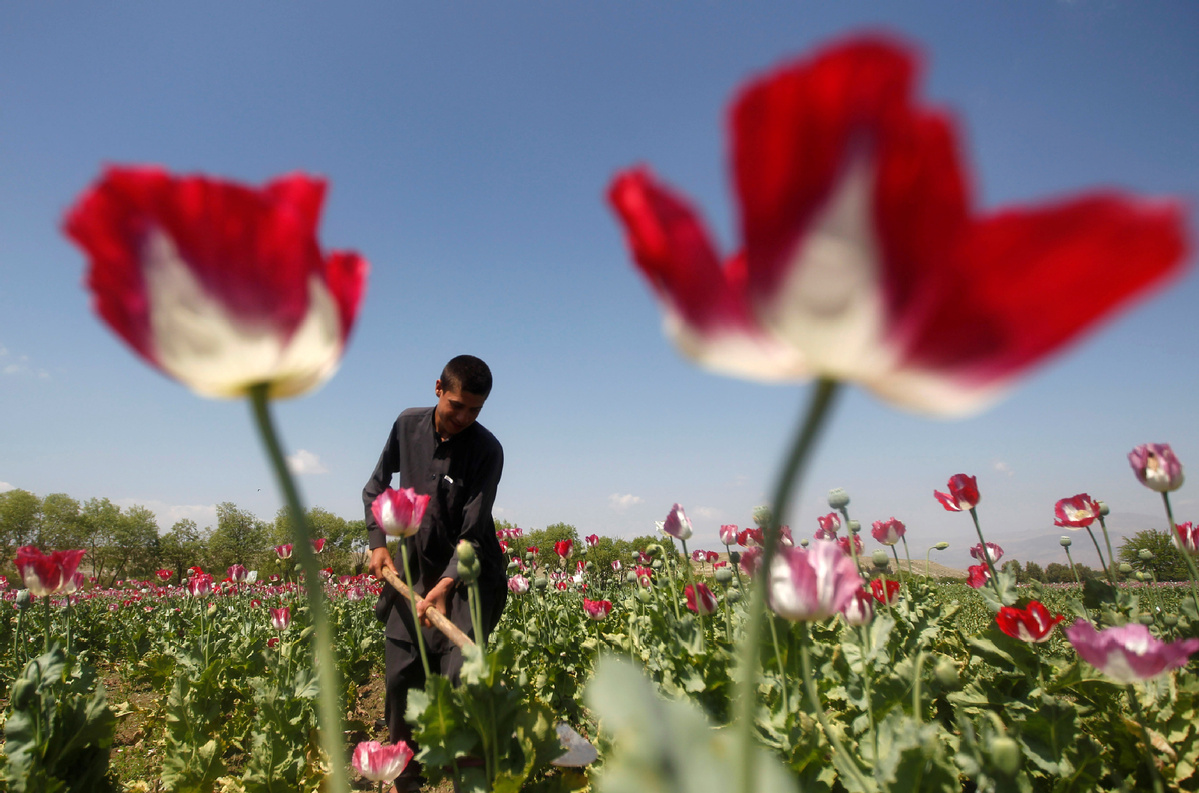Turning away from poppies, Afghan farmers bet on legal crops for a living
China Daily | Updated: 2020-07-14 09:45

LASHKAR GAH, Afghanistan - "We can earn more money from selling grapes than opium poppy if we have a market for our products," said Ehsanullah, 38, a farmer from Afghanistan's southern Helmand Province.
Infamous for growing poppies and an increasing insurgency, the restive province has been regarded as a hotbed for the Taliban, which have ruled parts of the province for more than a decade.
Farmers cultivated poppy on 163,000 hectares of land in militancy-plagued Afghanistan last year, according to a report of the United Nations Office on Drugs and Crime in June.
Although there is no figure on the poppy harvested in Helmand last year, the troubled province and neighboring Kandahar Province were among the major producers of the contraband in the country.
"Helmand's climate is also suitable for growing grapes. So, we also can have reasonable income if we find a market for the product," said Ehsanullah, who turned over part of his agricultural land outside Lashkar Gah to growing grapes a few years ago.
Ehsanullah described poppy cultivation, drug production and trafficking as a "stigma" for the province, and called upon other farmers to grow legal crops. "By growing grapes I earn honor for my province on one hand, and earn money and support my family on the other," he said.
Reasonable price
Following Ehsanullah's move, another farmer Sayed Ahmad also turned part of his farmland into a vineyard a couple of years ago. Ahmad said he is satisfied with the grapes.
Collecting clusters of grapes with his brother from his garden, Ahmad said: "The price of grapes in the local market is reasonable nowadays. And I hope the government could help farmers export their grapes."
The price of 7 kilograms of grapes in the local market is 350 afghani ($4.50) to 500 afghani.
"It is forecast that Helmand will supply about 90,750 tons of grapes to the local market in Helmand and other provinces this year," said Zalmay Alko, the head of the provincial agriculture department.
He said the government is committed to supporting the farmers to grow grapes, melons, watermelons, wheat, rice and other legal crops.
According to the official, many farmers in Helmand and neighboring provinces have given up poppy cultivation and switched to planting legal crops.
Zabihullah Aoliazada, the director of the agriculture department in neighboring Nimroz Province, also said many farmers have replaced poppy with legal crops, adding that more than 700,000 tons of melons had been harvested in the Chakhansor district of Nimroz Province this year.
XINHUA
























